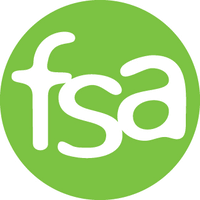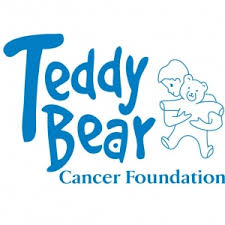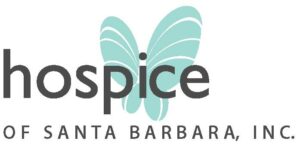Since May is National Mental Health Awareness Month, I will highlight some of the ways our extraordinary local nonprofits have pivoted their service model to adapt to the current crisis. You will be inspired by their creativity, resourcefulness, and commitment to their mission.
According to the Centers for Disease Control and Prevention, the COVID-19 pandemic is causing strong feelings of stress for adults and children. Therefore, in addition to treating their caseload of mentally ill patients, mental health providers are also focused on individuals adversely affected by the virus concerns and isolation.
>>New Beginnings Counseling Center.
I spoke with Dr. Crystal Ramirez, Clinical Director at New Beginnings Counseling Center, who explained that “It’s important to consider how isolation is impacting people emotionally and psychologically. By nature, we are social beings and we thrive in response to interaction with other people. Many people are suffering now from fear and isolation. Many are becoming more depressed and anxious due to economic concerns and widespread uncertainty. We’re designed to deal with these things together and it’s hard to feel connected to each other right now.”
Over 50 years ago, two psychiatrists who saw a need for low-income clients, founded the Night Clinic which later became New Beginnings. Today they serve over 300 people weekly through counseling, group therapy, and supportive services. The clinic operates with very few paid staff and all counselors and clinical supervisors are volunteers, providing an excellent training and supervision program.
A partnership with Cottage Health helped New Beginnings respond to the crisis.
Last year, they realized they would need to expand their service model. After conducting a community needs assessment and consulting Cottage Health’s assessment, New Beginnings invested in the HIPAA compliant version of Zoom. As it turns out, they were poised to begin offering their telehealth mental health services when the virus outbreak happened. Thanks to a grant from Cottage Health, it was a smooth transition.
Many people come into the clinic for their initial treatment and then continue with telehealth. This approach is especially helpful for their patient, Carl, who is wheelchair-bound and in an assisted living program.
They offer free therapy for healthcare workers, first responders, and mental health care workers. “Therapy is keeping him tethered to hope,” says Dr. Ramirez.

>>Family Service Agency
Family Service Agency (FSA) is providing mental health counseling during the pandemic through telehealth, interfacing with clients via phone or teleconferencing with the consent of clients/parents/guardians. FSA is adhering to standard HIPAA guidelines and only using HIPAA-compliant platforms for providing telehealth.
FSA counselors work with people as young as five and as old as 88, sometimes teaching clients how to use the technology. They are finding that seniors are highly engaged in their phone sessions, and, due to their isolation, counselors are providing service to them more frequently. They are finding that, for younger clients, it is more effective to spend 20-30 minutes checking in with them two to three times per week.
They are assembling and delivering play therapy kits that are being incorporated into telehealth counseling sessions with younger clients and activity kits to senior adult clients to give them some positive activity options.
Therapists in their Santa Maria Migrant Education program are working closely with teachers to help clients feel safer in a Zoom classroom. Having the therapist in the Zoom classroom translating for them has helped. Therapists notice this boosts confidence and students feel encouraged.

>>Teddy Bear Cancer Foundation.
Teddy Bear Cancer Foundation (TBCF) advocates for families with cancer living in Santa Barbara, Ventura, and San Luis Obispo counties by providing financial, educational, and emotional assistance.
Families whose child is under the age of 18 are eligible for their services, which continue until the age of 21. TBCF devotes a significant portion of their programs to family emotional support. Due to the COVID-19 crisis, all of their emotional support programs have been adapted to online modalities and now more families than before are participating without leaving their homes. In collaboration with local organizations and licensed therapists, they offer counseling groups for families whose child is newly diagnosed with cancer or in treatment.
Counseling groups are currently being offered through HIPAA-compliant online platforms such as Zoom. The organization is currently offering twice-monthly parent groups in both English and Spanish, as well as twice-monthly groups for teens. For more information, please call Teddy Bear Cancer Foundation at (805)962-7466 or email [email protected].

>>CALM.
For over 50 years, CALM has been providing a variety of trauma-informed, evidence-based programs and services that effectively treat child abuse and promote healing as well as programs successful in preventing childhood trauma through family strengthening and support. They provide their services to everyone in both Spanish and English, at a sliding scale or free of charge.
When faced with the challenges of the COVID-19 crisis, CALM began offering its counseling services through Telehealth. They also provide training, presentations, and classroom support via webinars.
CALM is maintaining a significant presence in households and classrooms to ensure the health and well-being of their clients, their staff, and the agency as a whole. “We remain nimble and ready to respond to the increasing needs of our shared community,” says Alana Walczak Executive Director. “Now is the time for all of us to focus on connectivity over productivity.” For services, contact Manager of Clinical Training, Mariana Harms, LMFT at (805) 965-2376 ext.251 or [email protected].

>>Hospice of Santa Barbara.
“As we adapt to the new reality of COVID-19, one thing is clear—Our services are needed more than ever,” says David Selberg, CEO of Hospice of Santa Barbara. “I can’t put into words how proud I am of our staff and volunteers as they meet the current challenges of continuing to provide our critical services, in a variety of creative and meaningful ways, to those facing a life-threatening illness or grieving the death of a loved one.”
Hospice recently changed to a Telehealth model whereby clients receive grief counseling and attend support groups via phone or HIPAA-compliant video chat services such as Zoom.
About two-thirds of their patients and their families are low-income, and many have lost their jobs due to the economic impact of COVID-19. There is a much greater demand for help with basic needs, like groceries and medications, transportation and navigating medical care by phone (also in Spanish). Their Patient Care volunteers are busy reaching out to the families to make sure these needs are met.
Their Beloved Bear Program switched gears to make COVID-19 masks. 120 handmade masks were created by members of this program—a program through which family members can receive a teddy bear dressed in clothes made from the garments of a loved one who has passed away. Fifty masks have already been donated directly to Cottage Hospital.
>>Additional mental health providers offer essential services as well.
Organizations like the Council on Alcoholism and Drug Abuse (CADA), the Mental Wellness Center, and the Community Counseling Center also provide various mental health and other services. All have adapted to the crisis through the addition of telehealth. You can find more information about accessing their services by visiting their websites.
>>All mental health providers need your financial donations.
Each of these organizations is working hard to tailor their services to meet the current demand. Their caseload has increased dramatically because of the COVID-19 pandemic. They are doing their best to serve our community and they need your help. Please visit their websites and give what you can to support their important work that enhances our entire community.

